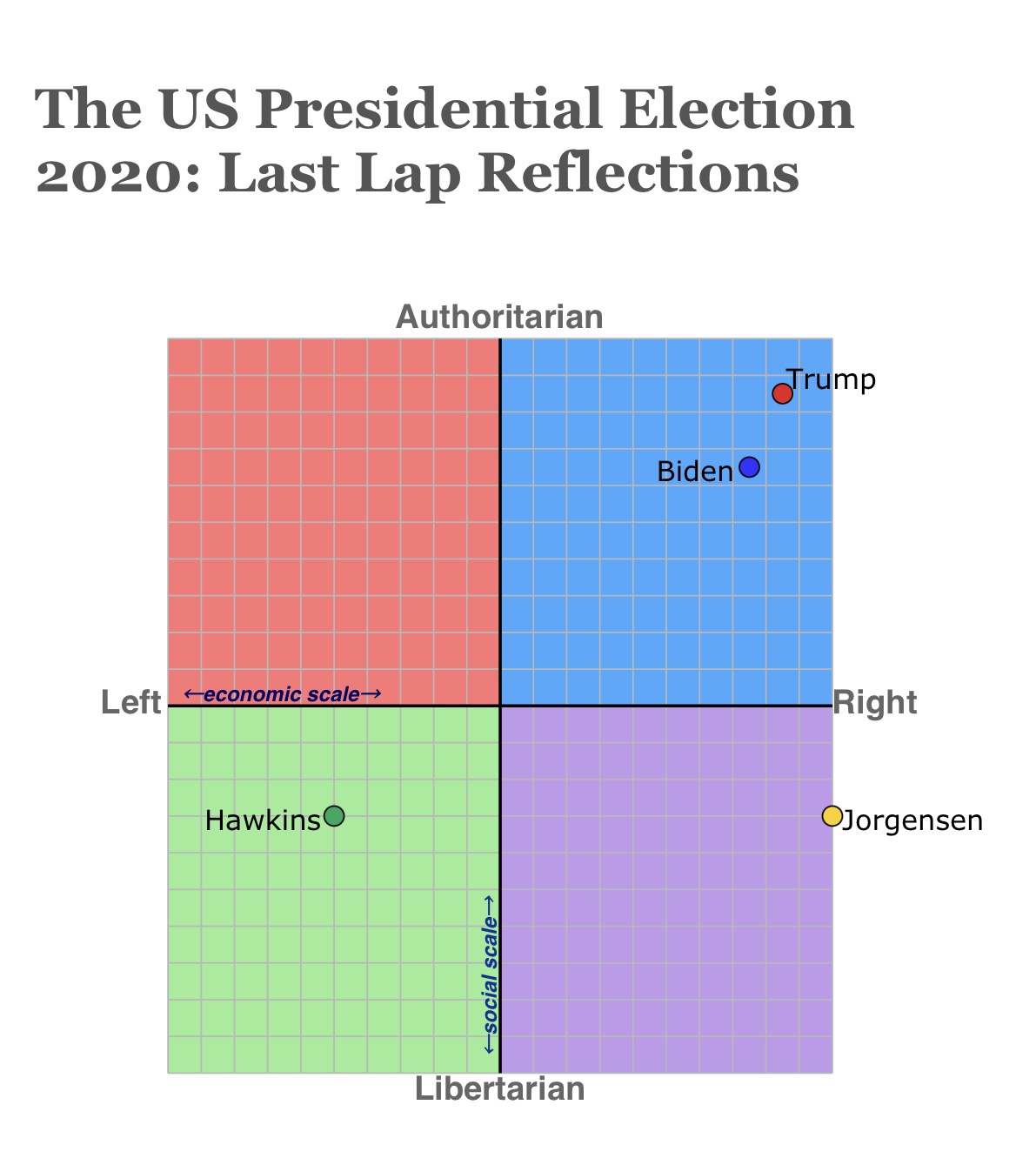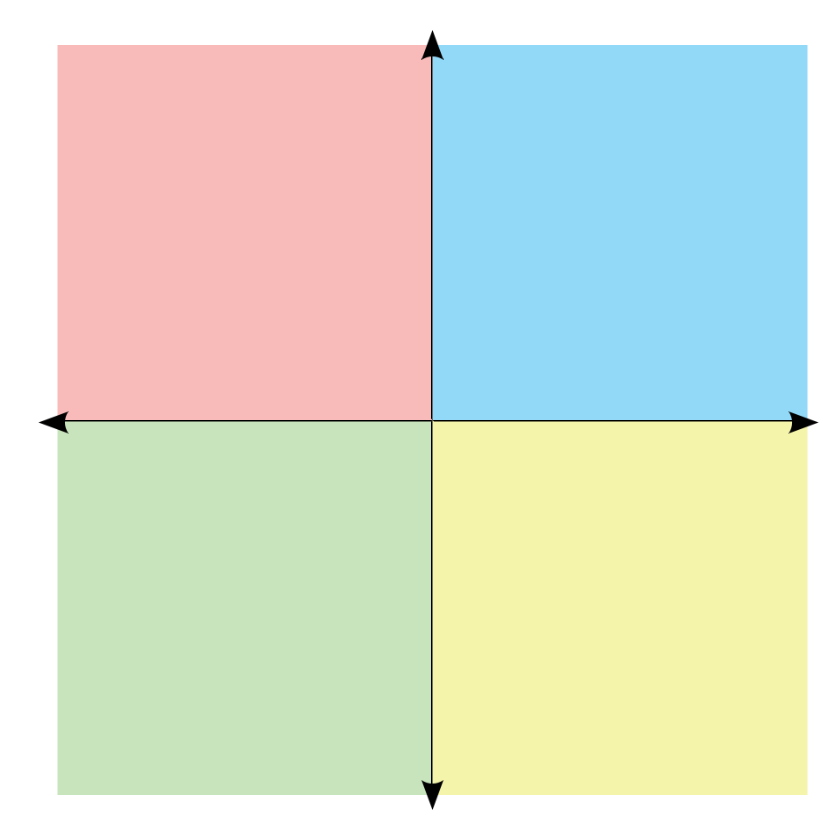Throughout my lifetime as a U.S. citizen, one peculiar anomaly that I’ve noticed among most Americans is that they tend to think of political ideas in a black-and-white manner; they are also obsessed with placing ideas in a reductive, arbitrary two-dimensional spectrum (when they should exist in a much more multi-faceted apparatus). Given the two-party system in which we now live, it seems on the surface level that Americans would believe that both parties are the true extremes of the political spectrum. An odd difference, though, is that the centrists and Republicans of the world all find progressives to be crazy fringe communists, while true far-right extremists exist in the U.S. government.
The truth that some people reading this may find offensive is that there is not a single authoritarian socialist or communist within the U.S. government. The American notion of the political spectrum has been misconstrued by the media and education system over the past few decades. Noam Chomsky remarked in The Common Good (1998) that “The smart way to keep people passive and obedient is to strictly limit the spectrum of acceptable opinion, but allow very lively debate within that spectrum…. That gives people the sense that there’s free thinking going on, while all the time the presuppositions of the system are being reinforced by the limits put on the range of the debate.” In fact, that is what the U.S. media and education system have largely done.
The spectrum of acceptable opinion in the US—which is already largely skewed to the right—leaves room for judgement only of the far-right fascists and the so-called “left-wing” progressives. This is why progressives are commonly equated with communists: the range of opinion in the US has been restricted so that anyone who criticizes business can essentially be written off as a communist.
To elucidate this, I implore the reader to consider that the political spectrum of the world is far more vast than in the United States. How is it that we can have politicians in the far-right, like Marjorie Taylor Greene and Lauren Boebert, who emulate characteristics of corporate fascism—and yet the people who are the farthest left would be considered centrists in any other economically advanced democracy?
Through my time learning about other democracies, it has become quite clear to me that other societies have more open discussion about politics that doesn’t seem to become personal. I was also struck by the range of opinion that exists elsewhere, which helped me realize that—through careful mastery of the media and education by self-serving forces, the U.S. political spectrum has become one where only ideas of corporate capitalism are acceptable. However, lately the Republican faction of the government has decided that an effective strategy is to write off virtually every Democratic politician as a socialist. This is ludicrous, as Biden and many other members of the Democratic Party are staunch capitalists. In fact, here is a visual representation of where 2020 presidential candidates lied on the political spectrum:

This is the political compass. It was created by a political journalist in order to help people better gain a sense of where they stand politically. So, this is the political difference between the candidates. Most of the members of the U.S. government are in the “Authoritarian Right” quadrant; progressives are usually in the Libertarian Center-Left; very few, if any, U.S. officials belong in the “Libertarian Right”; and there are positively no U.S. representatives in the “Authoritarian Left” quadrant.
One common (and exclusively American) train of thought is that there is no way that libertarian socialism can exist. It is a commonly held belief in the United States that all socialism is government overreach—and nothing more. For a country which has a deeply rooted historical pattern of defunding universal welfare programs and blaming the government for their inefficiency—culminating in turning them to private hands—it’s not shocking that Americans dislike all government presence in life. However, libertarian socialism is a way for the government to curb class unrest through creating equitability instead of turning to dismantling democracy. (I will address this notion in a future post.)
One final thing I’d like to leave readers with an understanding of is that acting as an esoteric centrist in the US is a cop-out. Being a centrist in the US is not the anti-establishment move that people often think it is. Self-proclaimed centrists often elaborate that they don’t like the government deferring to the economic elite and interest groups and would instead prefer the power to be “in the hands of the people.” Another common sentiment is that they don’t want to see the tax burden on low and middle-class, etc. They are looking in the wrong place. Centrists will complain about the issues plaguing our society—but constantly vote for people in the “Authoritarian Right” quadrant that serve the corporate and economic elite. This is precisely why identifying as “socially liberal and fiscally conservative” means nothing. It is the equivalent of acknowledging that our society needs improvement in areas of education, healthcare, tax reform, child care, and more but still voting for representatives who will cut funding for all of the areas that need improvement; they are only interested in protecting the elite.

8 responses to “Let’s Talk About the Political Spectrum”
Interesting
LikeLike
👍
LikeLike
https://www.pewresearch.org/fact-tank/2022/01/05/americans-at-the-ends-of-the-ideological-spectrum-are-the-most-active-in-national-politics/
LikeLike
Thanks for sharing in these comments! However, would you accept the premise upon which that narrative is built—that the perceived “ends” of the ideological spectrum are, indeed, the most active in politics? Or is this just what is conceived by the general public to be the “ends” of this so-called spectrum?
LikeLike
Very important distinction, as I’m sure you might agree.
LikeLike
This left vs right spectrum is always entertaining to watching. I am a communist but rather in the Marxist sense and this spectrum has no room for the antithesis of capitalism. It’s humorous that even socialist institutions and structures in America cannot even be labelled social because of that mass hysteria and propaganda against anything social or communistic.
LikeLike
Very well said! I primarily identify with the “libertarian socialist” label, but in an ideal world I agree that communism is an inevitable, viable step in the evolution of humanity. Just have to wait however many centuries it takes until the masses are able to embrace this, right?
LikeLike
And so true as for the mass hysteria and propaganda surrounding the word “socialist”! What an apt testimony to the power of a media apparatus that is controlled entirely by the rich and special interest groups.
LikeLike